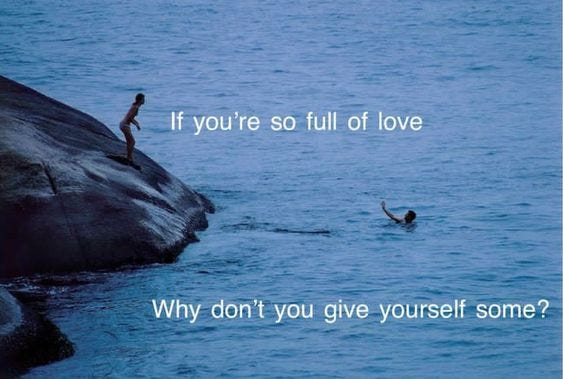Media Musings: A Silent Voice and the Importance of Self-Forgiveness
Exploring the Journey of Forgiveness in A Silent Voice
Trigger Warning: This article discusses themes of bullying, mental health struggles, depression, and suicide. Reader discretion is advised
"Things Would Have Been So Much Better Back Then… If We Had Heard Each Other’s Voices."
I think I was 12 or 13 when I first watched the silent voice on Netflix and I was never the same. It fostered an empathy in me that I didn’t realise I had.
In Year 12, I had to do a mini presentation about a topic of my choice. Initially, I planned to write about who I thought the true villain in Mean Girls was; however, it didn’t take me long to realise that I wanted to present something meaningful to my form. After some research, I decided to write about the anime A Silent Voice and the importance of self-forgiveness.
The story begins with new student Nishimiya Shoko arriving at school. Several of her classmates, led by popular boy Ishida, are shocked to learn she is deaf and begin bullying her. Despite Nishimiya's best efforts to fit in, the situation escalates until it reaches a breaking point. In the aftermath, Ishida’s classmates turn on him, and he becomes the outcast, grappling with feelings of guilt and suicidal thoughts. Five years later, burdened by remorse and eager to make amends, Ishida tracks down Nishimiya to apologise for his past actions, hoping to find redemption before he plans to end his own life.
To explain the importance of self-forgiveness, we must first define forgiveness and unforgiveness.
Forgiveness: An intentional decision to let go of resentment and anger. The act that hurt or offended you might always be with you, but working on forgiveness can lessen that act's grip on you.
Unforgiveness: When you are unwilling or unable to forgive someone for upsetting you, betraying you, or breaking your trust.
“I want you to help me live.”
Studies: The Physical and Psychological Effects of Unforgiveness
A study at the National Institutes of Health showed that forgiveness is linked with physical health in areas including, but not limited to: cholesterol, heart health, HIV, hypertension, physical pain, and sleep quality.
An article at Stanford Medicine stated that research has shown that those who practice self-forgiveness have better mental and emotional well-being, more positive attitudes, and healthier relationships. A related outcome ties self-compassion with higher levels of success, productivity, focus, and concentration.
An article at Johns Hopkins Medicine stated that people who hang on to grudges are more likely to experience severe depression and post-traumatic stress disorder, as well as other health conditions.
Why is Forgiving Ourselves Important?
Every time we act in a way we deem wrong, we create cognitive dissonance. This means that, because we acted against our ethical values, we feel an internal conflict and dissatisfaction with ourselves. As a result, we need to do something to fix the situation. Since it is impossible to erase our actions and difficult to forgive ourselves for the pain we caused, we may begin punishing ourselves instead.
Sometimes people overlook the concept of forgiveness because they assume it means what happened was okay. It doesn’t have to, though. Forgiveness may simply be a form of acceptance of your own humanity. Because it asks you to understand and make peace with what’s happened, self-forgiveness may help you discover what you need to do to find a sense of closure.
"The Thing Is, You Have To Accept The Bad Parts Of Yourself With The Good And Just Move Forward." - Kawai
How is This Demonstrated in the Film?
In an interview with Manga Tokyo, the animator of the manga, Naoko Yamada, stated, “Humans generally fail, hurt someone, or get hurt in order to live and end up in a situation that can’t be helped. I wanted to portray the hope that we can and may still live on.” This is clearly demonstrated in the film; while Ishida embarks on his journey to make amends, his initial end goal is death. However, when met with compassion by Shoko, his destiny is altered. This highlights how forgiveness can be used as a tool of love and preservation. "You are not your mistakes, you are more than your misgivings, and you deserve your own happiness."
“When you finally realize that “A Silent Voice” is not a story about a guy falling in love with a girl, it’s about a guy being able to love himself again” - A Youtube comment I found on Pinterest
“You never know the silent battles people are fighting, even the people you think you’re closest to. You’ll never walk in my shoes, and I’ll never walk in yours.”
― Madison Beer, The Half of It: A Memoir
I love you.
Your friend, Hannah







